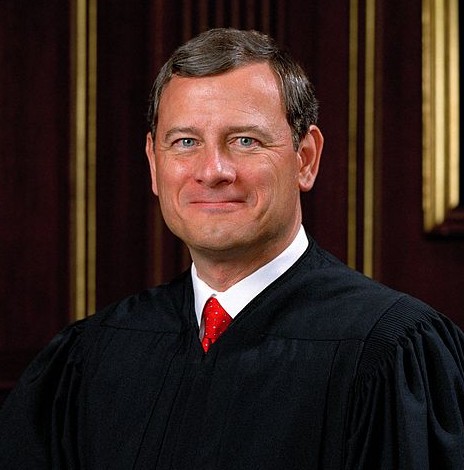
Chief Justice John Roberts
The Washington Post reports that Chief Justice John Roberts showed up for jury duty today in the D.C. suburb of Rockville, Md. As part of the jury pool for a civil trial involving a car accident, the top judge in all the land filled out a questionnaire and answered a few questions from attorneys in the case.
Alas, he was dismissed from serving, leaving us to mull over some wonderful what-ifs.
Such as:
What if one of the attorneys questioned him—under oath—about the right to health care?
Would Roberts be disappointed if he didn’t get to be jury foreman?
Or what if—dramatic pause—none of his fellow jurors recognized him?
While it’s back to work at the Supreme Court for the chief justice, it is worth considering the state of American juries. Thomas Paine called the right to trial by jury a “bulwark of natural rights,” an essential part of being a republican, rather than a royalist, people.
But “getting out of jury duty” is a phrase so familiar we barely stop to consider its corrosive effect on the idea of self-government. How well are we fulfilling our responsibilities if we look down on such a fundamental right, to be judged by our peers?
I know that when I saw the headline, “Roberts summoned for jury duty,” the first question that crossed my mind was how quickly he “got out” of it. I suspect I’m not alone.
The question we must answer as a people is how to make serving on a jury the honorable thing to do.
DeLea Sayers says
I applaud him for taking his responsibility as a citizen seriously, even if his position would most certainly disqualify him as a juror as he may be needed to render an opinion in an appeal in his real job. After all, what if this case were to be appealed all the way up to the Supreme Court!
I personally have been called for jury service six times in 40 years. In those summons, I have served on three juries and not selected on the others. I will state that there are a few jurors who seem to feel that serving on a jury is their way of creating social justice and will vote along economical, political or ethnic lines. But, for the most part, citizens do come to the jury box open minded with the idea that they are serving their city, state or country.
I feel the same way. It’s one of the wacky things in our system that you can’t volunteer for jury duty (at least generally-I don’t know of any exceptions). It’s in the name of equity, but you have to wonder if it really works out that way.
I would very much like to be on a jury, but have NEVER been called, in over 40 years of being an independent citizen and registered voter. When my sister, who had dementia, came to live with me, she was summonsed for jury duty within 2 years. When I filled out the form to explain she was unable to serve, I offered myself in her place. I did not receive a response. How ironic!